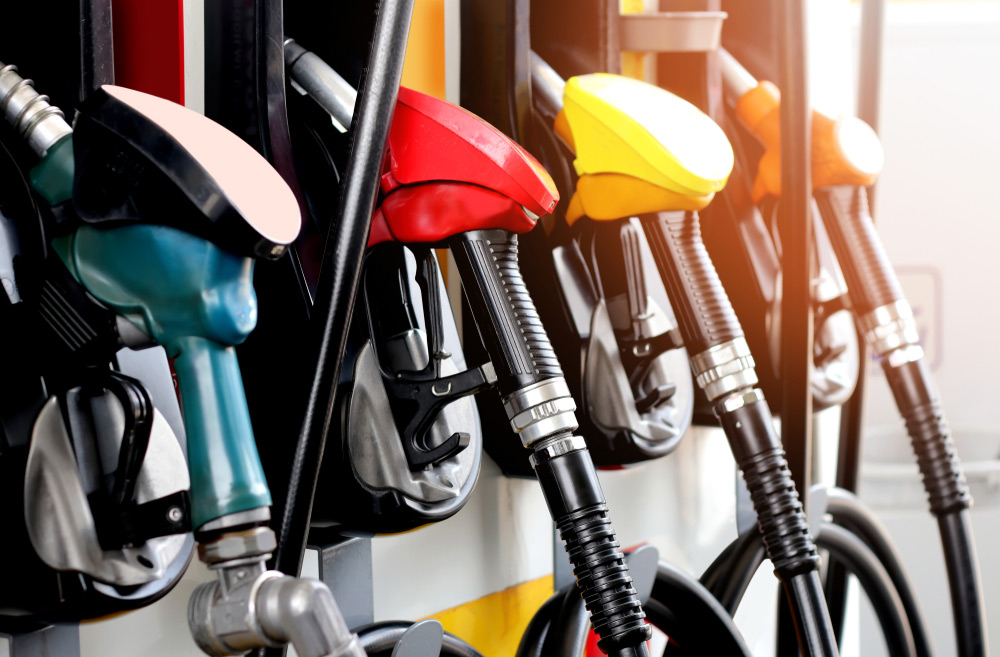When you roll up at your local gas station you have the choice of a variety of fuels, from the cheapest most basic gas to petrol with extra additives, to lastly higher octane gas. Should you choose the higher octane gas, seeing how it's more expensive and a higher number means that it's better? The answer is to check your car's owner's manual, but as a general guideline most likely no. Why? Well, let's explain.
How does a petrol engine work in the first place?
As you probably know, an internal combustion engine has a volume made up of a number of cylinders. In these cylinders there's a moving "disc" called a piston, piston linked to a "beam" called a con rod which is linked to a crankshaft. Inside each cylinder there's an explosion happening, that explosion pushes the piston down. The piston moves the conrod, which is attached to the crankshaft, and these combination of parts transforms the piston's linear motion into rotational motion. Simple enough.
What causes the explosion which moves the piston?
In a regular petrol engine, that explosion happens because the mixture of air and fuel is ignited by a spark. The piston at some point in time sucks air inside while moving downwards. After that, it starts moving upwards and squeezes the air and the fuel mixed in. When it reaches the top of the cylinder, a spark generated by a sparkplug fires and ignites the mixture and creates that explosion. The explosion moves the piston downward, creating motion.
Does the octane number influence the explosion?
From an energetical point of view, no. The octane number doesn't influence the power or force of the explosion at all. That's not the reason why different octane numbers exist. The explosion is influenced by the engine's heat, the position of a sparkplug, how compressed the air and fuel mixture is before exploding, the diameter of the cylinder, and many others.
Can an explosion happen without a spark?
Yes, it can. That's how diesel engines work. Due to physics, temperature, pressure, and volume are tightly linked together. Inside a cylinder enters a certain mass of air and fuel, that's obviously constant. If the piston moves upward, then the volume decreases. If the volume decreases, pressure and temperature increase. The temperature increases so much that the fuel ignites on its own (around 210?C for diesel fuel). But this is a diesel engine, not a petrol engine. On a petrol engine we want to ignite the fuel when we want using a spark, not when it just decides that it will ignite.
Can the gas inside a petrol engine self-ignite?
Yes, it can certainly can. I'll explain a bit, even if it becomes a bit more complicated. We can agree that, for an engine to do as much useful work as possible, the explosion has to happen when the piston reached it's maximum height. If the explosion happens too soon, the piston hasn't reached it's maximum height yet. If the explosion happens then, the piston is trying to move upward, because it's trying to reach its maximum height, but the explosion pushes it downward before it's able to do anything. As such, the piston is shoved by the explosion and if this is bad enough you can seriously damage your engine. This is called knocking. This can happen due to a variety of reasons.
How do we stop this from happening?
By using a fuel with a higher octane number. That's what the octane number is: how hard is it for this petrol to self-ignite? The higher the number, the harder it is. That's if this is the only reason of why the engine is knocking. It can knock due to multiple reasons.
So, should I just go to the gas station and always buy the highest octane number available to not damage my engine?
No. Engineers, when they develop and create a car's engine, they already know what kind of octane number they are going to use. This number is highly regulated and strict in the building process, as such, it won't change at all. As such, if you want to know what this number is, you can find it in the car's owner's manual. If the owner's manual says that you need to use 89 octane, then you use 89 octane.
What happens if I use a higher octane number?
Usually nothing. If your car is rated at 89 octane and you use 91, the explosion already happens when it should happen, as such, you gain nothing. If in the owner's manual you find that you can also use 91 octane to get more power, then yeah, you gain an increase in power.
What happens if I use a lower octane number?
You will damage your engine if the engine can't use it. If you have a car that requires you to use 91 octane and you fill it up with 89 octane you can expect the car to drive poorly and damage the engine. Some engines can change some parameters if it detects knocking, to protect the engine, and it will run poorer but won't damage anything, but this is newer technology. Cars in the early 2000s and earlier don't have such technology and fine control.

